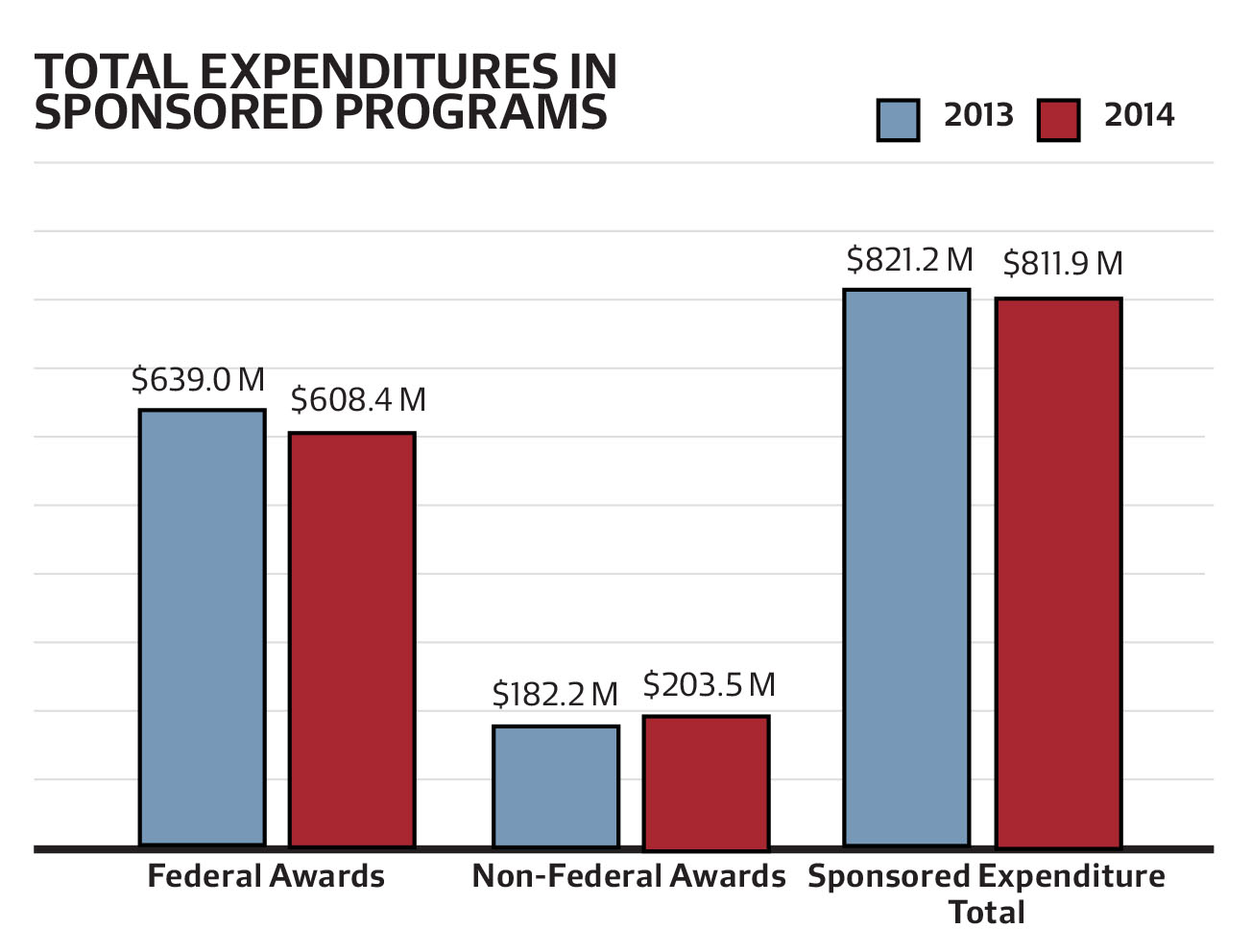The Harvard research funding crisis has raised urgent questions about the future of academic innovation in the United States, as recent government actions threaten to destabilize this vital sector. Following the Trump administration’s controversial research funding directives, Harvard faced a staggering $2.2 billion freeze that affected numerous projects, including groundbreaking work at the Wyss Institute, known for its organ-on-a-chip technology. This funding freeze has sparked significant repercussions, with Harvard launching a lawsuit against the government, deeming the demands unconstitutional. As researchers scramble to retain talent and pivot their projects amid uncertainty, the impact of U.S. policies on research becomes unmistakably evident. The implications for academic research innovation could reshape not only Harvard but also the landscape of scientific progress across the nation.
The turmoil surrounding Harvard University’s funding predicament is indicative of a broader crisis facing research institutions in America. As the challenges surrounding federal funding intensify, the implications of recent U.S. government policies on academic endeavors are becoming increasingly pronounced. The events following the Trump administration’s funding restrictions have prompted a reevaluation of how universities navigate governmental demands and safeguard their vital research capacities. In the wake of this turmoil, initiatives such as the Wyss Institute’s cutting-edge organ-on-a-chip projects stand at risk, emphasizing the need to foster an environment that encourages scientific exploration and collaboration. Thus, the ongoing battle for research funds underscores the crucial relationship between public policy and the advancement of innovation in academia.
The Harvard Research Funding Crisis Explained
The recent Harvard research funding crisis has arisen due to the Trump administration’s abrupt freeze on approximately $2.2 billion in funding to the university. This drastic measure was implemented after Harvard’s refusal to comply with a series of contentious demands from the federal government. The implications of this crisis are far-reaching, not only affecting the immediate researchers and projects but also casting a shadow over the future of academic research innovation in the United States. With cuts hitting critical projects such as the organ-on-a-chip initiatives at the Wyss Institute, the halt in funding has left both faculty and students grappling with uncertainty.
As researchers strive to navigate this turbulent landscape, the halt in research activities raises questions about the long-term impacts on scientific progress. Losing momentum on projects like those studying the effects of radiation on human health could delay significant advancements in public health and safety. The legal battle initiated by Harvard against the government highlights the conflicts between educational institutions and federal oversight, underlining deeper issues regarding the freedom of academic research amidst shifting political dynamics.
The situation becomes even more complicated as talented researchers consider their options. The threats posed by the funding halt lead to an atmosphere of fear among scientists, with some even opting to leave their positions or rescind job offers. This brain drain could hinder U.S. research capacity at a time when global collaboration is more crucial than ever. Harvard’s insistence on protecting its research community showcases a commitment to maintaining academic standards but also points to the growing tensions between the government and institutions that have historically driven innovation. The resolution of this crisis could set a precedent for how academic research is funded and conducted in the future.
The Impact of US Policies on Research and Innovation
US policies under the Trump administration have profoundly affected the landscape of research and innovation, as seen in the abrupt funding cuts faced by institutions like Harvard. The suspension of funding creates a ripple effect that not only disrupts ongoing projects but also sets back years of research efforts designed to foster innovation. For example, organ-on-a-chip projects, which are critical for understanding complex biological processes, are now at risk. The technology developed by the Wyss Institute is essential in exploring health issues, such as radiation damage, which have implications for both space travel and medical treatments. The effective functioning of such projects hinges on stable funding and institutional support from the government.
The current environment, characterized by instability and uncertainty, deters future investment in research. When researchers feel threatened by funding cuts or policy shifts, they may be less inclined to pursue groundbreaking ideas or innovative solutions, which could ultimately hinder the United States’ position as a global leader in science and technology. These changes in policy not only affect researchers but also raise broader questions about the sustainability of America’s innovation engine, which has thrived on the collaboration between academia and government support.
In light of these challenges, academic institutions must adapt to protect their research missions and ensure that innovation continues to thrive despite external pressures. The legal actions taken by Harvard reflect a growing recognition of the need to safeguard academic freedom and the essential role of government funding in scientific inquiry. Additionally, conversations surrounding the impact of these policies extend to the international stage, where difficulties in attracting foreign talent could diminish the nation’s research capabilities. The concern is that negative perceptions of the U.S. research landscape could lead to lesser collaboration and innovation in the future.
The Role of the Wyss Institute Amidst Funding Challenges
The Wyss Institute for Biologically Inspired Engineering has been thrust into the spotlight amid the ongoing funding crisis, with its groundbreaking organ-on-a-chip technologies potentially at stake. These projects are not only innovative but serve critical research functions that have far-reaching implications for healthcare and space exploration. As the Institute navigates this tumultuous time, its leadership stresses the importance of quickly adapting to funding changes and prioritizing their skilled researchers. Don Ingber, the founding director, is actively seeking solutions to retain talent while finding internal funding alternatives to mitigate the impact of the stop-work orders instigated by federal funding cuts.
Ingber emphasizes the necessity of preserving the integrity of research and protecting personnel, underscoring that innovation does not occur in a vacuum. The Wyss Institute, like many others, relies on a plethora of collaborations and funding streams to propel its mission forward. By advocating for a commitment to protecting researchers and projects, Ingber seeks to shield the Institute from the broader implications of the Harvard lawsuit against the government and the overarching funding instability.
The Wyss Institute’s situation exemplifies the crossroads at which academic research finds itself in light of federal policies. Decisions made in the coming months will shape the trajectory of not only the Institute but also influence the stability and future direction of innovative research across the nation. The urgency of maintaining momentum in projects vital to public health and technology development cannot be overstated. The potential long-term impacts of federal funding cuts will resonate beyond the immediate realm, potentially altering the landscape of American academic research for years to come.
Navigating Uncertain Times for Academic Institutions
As Harvard and other academic institutions grapple with the recent funding crisis, the landscape for research and education faces unprecedented challenges. The groundwork for cutting-edge science and technological advancements depends heavily on predictable and robust funding from government sources. The frustrations expressed by researchers highlight a larger systemic issue concerning the funding priorities of the Trump administration, which may compromise America’s innovative edge in the global arena. Institutions must navigate these uncertain times by proactively seeking alternative funding avenues and reinforcing their collaborative networks across and beyond academia.
During this tumultuous period, academic leaders are compelled to reassess their strategies for securing funding and maintaining research vitality amidst external pressures. Engaging in advocacy and raising public awareness about the importance of academic research innovation could be vital steps in countering the detrimental impacts of governmental policies. The demand to secure a stable foundation for research efforts is critical to preserving the integrity of academic projects and ensuring that knowledge creation continues unabated despite political turbulence.
Moreover, an emphasis on transparency and communication with stakeholders, including faculty, students, and the broader community, is crucial in times of crisis. Leaders in academic institutions must prioritize their missions and demonstrate resilience, even while facing external adversities. By fostering an inclusive environment that embraces diverse perspectives and innovative ideas, these institutions might leverage their collective strengths to overcome challenges posed by funding cuts and political pressures. Building a resilient culture that adapts to change will enhance the ability of universities to continue contributing to the innovation-driven economy of the United States.
Repercussions of Federal Government Actions on Research Talent
One direct consequence of the federal government’s actions, especially the funding freeze imposed by the Trump administration, has been a noticeable impact on the recruitment and retention of research talent in the United States. The halt in federal funding creates an atmosphere of uncertainty that can deter both domestic and international scholars from pursuing opportunities in leading institutions like Harvard. Researchers are not only concerned about funding for existing projects, but they also fear the implications on the long-term viability of their careers in an increasingly volatile environment. This shift may push talented individuals to seek opportunities in more stable settings, diluting the concentration of expertise in U.S. academic institutions.
The fear surrounding job security and research sustainability is tangible, as evidenced by the decisions of some scholars to leave promising positions in American institutions for opportunities abroad. Universities have historically been magnets for international talent, and many academic leaders are now expressing concerns that the United States may lose its competitive edge in research and academic pursuits. The collaboration that once thrived between the U.S. and foreign researchers could diminish, leading to a brain drain that would have severe implications for the nation’s research capabilities in vital fields such as medicine, engineering, and technology.
Moreover, the narrative around the safety and welcoming nature of the academic environment in the U.S. is essential in attracting global talent. The anxiety that potential candidates feel due to the current political climate must be acknowledged and addressed by university leaders. Instituting policies that emphasize inclusivity and support for all researchers can help restore confidence in the academic system. The intellectual capital developed through diverse inputs contributes significantly to innovation; therefore, maintaining a robust influx of talent is critical for the continued success of academic research in the United States.
Future Implications for Harvard and Beyond
The ramifications of the ongoing crisis at Harvard extend beyond the university itself, offering a glimpse into the future landscape of American research. Should the government’s funding cuts persist, the trickle-down effect will foreseeably extend to similar institutions, interrupting critical projects that drive technological advancement and public responsibility. These disruptions have the potential to undermine critical research endeavors that tackle major societal challenges, from public health to environmental crises. An unwavering commitment to restoring funding is essential, as the loss of resources could impede groundbreaking investigations that form the backbone of American innovation.
Looking ahead, Harvard’s legal battle against the federal government could set precedent for how future conflicts over academic autonomy and funding are resolved. Should the university succeed in its lawsuit, it will compel the government to reconsider its approach to funding and governance of academic institutions, potentially leading to more collaborative frameworks that can withstand political fluctuations. The outcomes of these events will likely shape not only the fate of Harvard but also influence funding policies across various academic and research institutions across the country.
As the Harvard research funding crisis unfolds, it serves as a cautionary tale for other prestigious institutions facing similar threats. Academic leaders must actively engage in dialogue with policymakers to advocate for funding that prioritizes scientific inquiry and innovation. The importance of collaboration between the government and academic establishments should be emphasized, as this partnership has historically forged a path for the United States to remain at the forefront of scientific advancement. The way forward hinges on a collective push to redefine the relationship between federal funding and academic research in order to secure a prosperous future for generations of researchers and innovators.
Frequently Asked Questions
What is the Harvard research funding crisis and its impact on academic projects?
The Harvard research funding crisis refers to the recent halt in approximately $2.2 billion in research funding to the university, particularly affecting projects like the organ-on-a-chip at the Wyss Institute. This crisis arose after the Trump administration’s demands for changes in governance and oversight were rejected by Harvard. The stop-work order has disrupted vital research work, leading to uncertainty for researchers and jeopardizing ongoing projects that address significant scientific challenges.
How did the Trump administration’s policies influence the Harvard research funding crisis?
The Trump administration’s policy decisions have had a direct impact on the Harvard research funding crisis by imposing demands that Harvard found to be overreaching, ultimately resulting in the freezing of critical research funding. This situation highlights how federal policies can disrupt academic research and innovation at prestigious institutions like Harvard, affecting both ongoing projects and future scientific advancements.
What projects at Harvard are affected by the research funding crisis?
The research funding crisis at Harvard has directly impacted key projects at the Wyss Institute, particularly those involving organ-on-a-chip technology aimed at studying radiation damage to human organs and effects of microgravity on astronauts. These projects not only hold significant scientific merit but are also crucial for advancing our understanding of health impacts related to nuclear power and space exploration.
What are the implications of the Harvard lawsuit against the government regarding research funding?
Harvard’s lawsuit against the government is a response to the illegal and unconstitutional overreach it perceives in the Trump administration’s demands surrounding research funding. This lawsuit seeks the restoration of funding critical for various academic projects. The outcome could set a precedent for future interactions between federal policies and academic institutions, influencing how research innovation is supported or hindered.
How does the Harvard research funding crisis reflect on the impact of US policies on research and innovation?
The Harvard research funding crisis is emblematic of the broader impacts of US policies on research and innovation. Federal actions that impose restrictions or demands on academic institutions can stifle the creativity and progress that underpin scientific breakthroughs. The crisis highlights the fragile relationship between government support and academic research, which is vital for maintaining America’s leadership in global innovation.
What role does the Wyss Institute’s organ-on-a-chip technology play amidst the Harvard research funding crisis?
The Wyss Institute’s organ-on-a-chip technology plays a pivotal role in addressing pressing health challenges, particularly in studying radiation effects on human tissues and the impact of space travel on astronauts. The ongoing funding crisis has the potential to halt this innovative research, which is essential for both medical advancements and understanding human health in extreme environments, emphasizing the urgent need for restored funding.
How has the Harvard research funding crisis affected international researchers and recruitment?
The Harvard research funding crisis has created a climate of uncertainty that discourages international researchers from relocating to Boston. Concerns about instability in U.S. policies and the potential risks associated with being a foreign academic have led to rescinded job offers and heightened anxiety among prospective candidates, which could diminish the diversity and talent pool essential for academic excellence.
What can be expected if the Harvard research funding crisis continues unresolved?
If the Harvard research funding crisis remains unresolved, there could be significant long-term consequences for academic research and innovation in the U.S. Critical projects may be abandoned, key talent could leave the institution or even the country, and the ability to attract the best minds to important research fields may be severely affected, ultimately weakening the nation’s position as a leader in scientific and technological advancements.
How can the Harvard research funding crisis shape the future of academic research?
The Harvard research funding crisis may reshape the future of academic research by highlighting the need for clearer, more supportive governmental policies that protect and fund scientific innovation. It underscores the importance of the partnership between academia and government in fostering a robust research environment, which is crucial for developing technologies that enhance quality of life and address global challenges.
| Key Points | Details |
|---|---|
| Stop-Work Order | Harvard researchers, including Don Ingber, received stop-work orders affecting key projects after funding was frozen by the government. |
| Government Funding Freeze | Approximately $2.2 billion in research funding was blocked by the Trump administration following Harvard’s refusal to comply with specific governance changes. |
| Research Impact | Halting projects jeopardizes ongoing research, affects academic progress for students and postdoctoral fellows, and has led to significant uncertainty. |
| Law Enforcement | Harvard has filed a lawsuit to restore the funding, arguing the demands from the administration are unconstitutional. |
| Retention of Talent | Efforts are being made to find alternative positions for researchers affected by the stop-work order to prevent layoffs. |
| Innovation Threatened | The crisis threatens America’s long-standing innovation system, which is crucial for technological advancement and economic growth. |
| International Scientists’ Reluctance | The uncertainty is deterring international scientists from pursuing opportunities in Boston, impacting future talent acquisition. |
Summary
The Harvard research funding crisis highlights the volatility and risks associated with the current administration’s approach to university funding. With the freezing of approximately $2.2 billion and the imposition of stop-work orders, researchers such as Don Ingber are left scrambling to secure personnel and maintain critical projects that drive innovation. This situation not only jeopardizes ongoing research but also deters international talent from collaborating in a historically strong environment for academic excellence. As the implications of these actions unfold, the need for a reliable funding model that supports scientific inquiry and technological development becomes increasingly evident.





